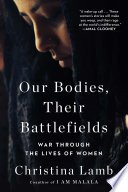Top of the pile
94
/100
I Index Overall Rating

Readers
Critics
Scholars
N/A
Author:
Mattilda Bernstein Sycamore
Publisher:
Soft Skull Press
Date:
November 7, 2023
Taking the form of a self-directed research project, Sycamore recounts the legacy of her fraught relationship with her late grandmother, an abstract artist from Baltimore who encouraged Mattilda as a young artist, then disparaged Mattilda's work as "vulgar" and a "waste of talent" once it became unapologetically queer. As she sorts through her grandmother Gladys's paintings and handmade paperworks, Sycamore examines the creative impulse itself. In fragments evoking the movements of memory, she searches for Gladys's place within the trajectories of midcentury modernism and Abstract Expressionism, Jewish assimilation and white flight, intergenerational trauma and class striving.
What The Reviewers Say
Daniel Allen Cox,
Brooklyn Rail
Brooklyn Rail
This hybrid work of biography, social history, and criticism weaves memoir seamlessly into the mix.
Elizabeth Hall,
Full Stop
Full Stop
Opens with a collage of memories, ekphrasis, and philosophical aphorisms that mimic the slippery nature of Sycamore and Gladys’s adult relationship.
Mikhal Weiner,
Jewish Book Council
Jewish Book Council
Possibly the most brilliant choice the author made was arranging this book as a kind of collage — a nod to the medium in which Goldstein worked. Sycamore explains how her grandmother’s pieces interact with one another and their environments, both historically and physically.
Sam Sax,
The Believer
The Believer
This book blurs the lines of genre convention and polyvocality by assembling a multivoiced collage of texture, feeling, and evidence. Sycamore works with archival materials, resuscitated and reconstructed memory, and interviews to produce a collection that’s part art history, part art theory, and part memoir, collapsing the spaces between authorship and authority, and between knowledge production and inheritance.
















